#capitalist patriarchy
Text
Hard work, especially when closely bossed, was likewise not a badge
of manliness in the United States in the way that it had been in Eastern Europe. Racialized, it was also demasculinized, especially since its extremely low pay and sporadic nature ensured that new immigrant males could not be breadwinners for a family.
James R. Barrett, Inbetween Peoples
#capitalist patriarchy#tankie#ableism#labor rights#james r. barrett#james r barrett#james barrett#barrett#1991#barrett 1991#inbetween peoples#inbetween peoples race nationality and the “new immigrant” woring class#inbetween peoples: race nationality and the “new immigrant” working class#inbetween peoples race nationality and the new immigrant working class#inbetween peoples: race nationality and the new immigrant working class#race nationality and the “new immigrant” working class#race nationality and the new immigrant working class
1 note
·
View note
Text
People asking how Mattel agreed to the Barbie movie as if capitalist recuperation of anti-capitalist text is a new phenomenon.
As if "corporate overlords bad" is not the plot of hundreds of movies. as if the Barbie movie says anything constructive on capitalism or patriarchy.
As if Mattel isn't making a whole lot of money right now. They knew that Barbie + Greta Gerwig + Feminism + right wing crybabies = profit. There's no such thing as bad PR.
Capitalism is a machine that turns EVERYTHING into profit. Even it's own critique, even the tools people try to dismantle it with.
#barbie#barbie 2023#barbie movie#capitalism#patriarchy#anticapitalism#late stage capitalism#capitalist realism
806 notes
·
View notes
Text
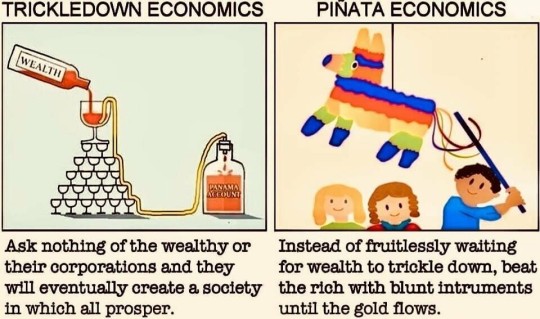
#trickle down economics#piñata economics#fyi#psa#class war#classwar#capitalism#anti capitalist#capitalist hell#capitalist dystopia#capitalist bullshit#eat the rich#eat the fucking rich#fuck the gop#fuck the police#fuck the supreme court#fuck the patriarchy#ausgov#politas#auspol#tasgov#taspol#australia#neoliberal capitalism#fuck neoliberals#anthony albanese#albanese government#antiauthoritarian#antinazi#anti capitalism
494 notes
·
View notes
Text
Say Trans Rights
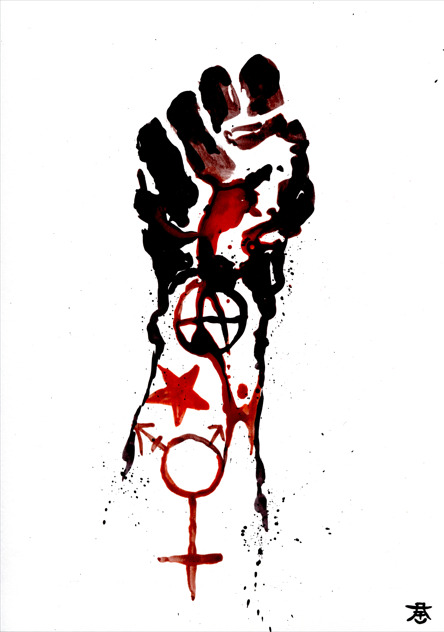
This is by Kim Diaz Holm and is released under Creative Commons
#trans rights#trans rights are human rights#solidarity#intersectionality#anarchist#Kim Diaz Holm#radical art#transrights#transblr#queer art#anarchist art#solidarity forever#creative commons#youth liberation#socialism#leftist#anti capitalism#human rights#free palestine#art#smash the patriarchy#settler colonialism#police abolition#organizing#marxism leninism#communism#anti capitalist#anarchism#leftism
42 notes
·
View notes
Text
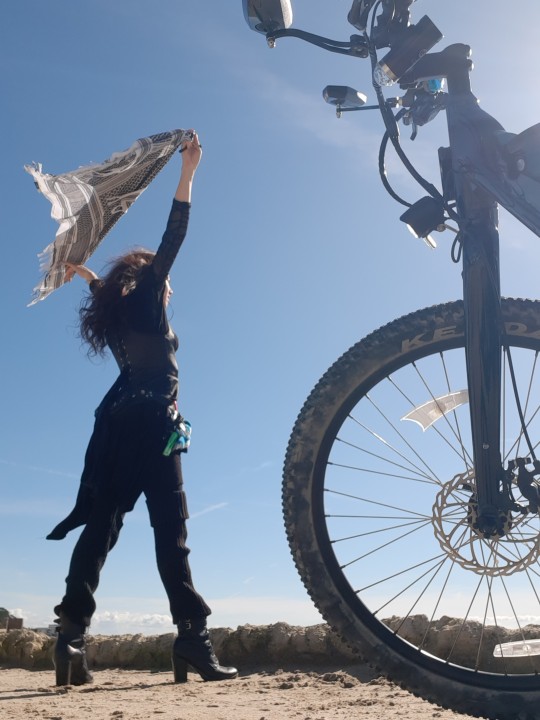
I used to think there was something wrong w me that I like wearing clothes more than being naked, even during sex. But it turns out I hekkin luv clothes bc you can say stuff w them. For instance, this outfit says "Rogues for Palestine"
#free palestine#fashion statement#queer artist#disabled artist#queer model#alt model#free gaza#keffiyeh#trans artist#my photography#self portrait#self portrait photography#rogue#dnd rogue#assassin#smash the patriarchy#anti capitalism#anti capitalist#antifascist#intersectional social justice#intersectionality#intersectionalfeminist#intersectional activism#human rights#black lives matter#reproductive freedom
20 notes
·
View notes
Text
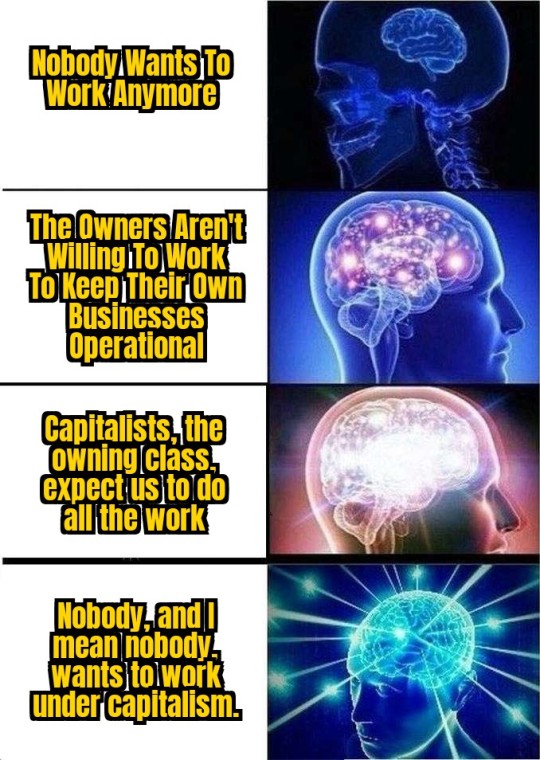
#anti capitalist#capitalism#taking the L#nobody wants to work anymore#fuck the patriarchy#fuck the man#fuck capitalism#labor rights#We Are Literally Financing A Class Of People Who Do Nothing To Better Humanity#The 1% are the real welfare queens#antiwork#punk#leftist#communism#anarchism#anarchy#eat the rich
21 notes
·
View notes
Note
i don’t have a uterus so forgive my ignorance but… 2 weeks??? 😭 i thought it was one wtf have i been lied to
That absolutely is a lie pushed on society by big pharma and the industrial complex (don't fact check me on this) I mean everyone is different snd everyone has their own fun little insanity inducing ~quirks~ to their cycle, but most people I've known who have periods usually have the week or so leading up to the period where you are either extremely hungry or hate the sight of food, ya bloat, boobs are sore, ya get so fucking horny that a bitch gets close to licking their own phone if someone hot enough scrolls through. And none of that covers potential skin issues, sleeping issues, depression issue, etc.
Then the actual period begins 😒 which is a whole other clusterfuckery bag of systems to deal with. And they say 2-7 days. If you just felt like you heard an echo in the distance, that was the feral wildbeast screech of every person who is on day 9 of their period. Who thought they were done and went back to regular clothes only to fUCKING START SPOTTING AGAIN 😤
And none of that even begins to account for anomalies like endometriosis or polycystic ovarian syndrome which can lead to even longer periods, more frequent periods, intensely painful periods (think stabbing pain. Burning pain. Feeling like your lower intestines are being wrung out like a wash towel.)
And we do this every month. While working. And cleaning. And cooking. And being general useful members of society.
My point in all this being, everything you've ever learned as a "generalized rule" about periods is a gotdamn lie and just, just listen to people who have periods when they say it's hell and we deserve to nap, complain, and eat our little treats in peace
#anon#don't worry anon I don't blame you#i blame the capitalistic patriarchy#i have the fun experience of having multiple periods in a month several times a year 🙃#between may and june i had 4#4#as in 4 different periods#in 2 months#if your first thought was damn andi were you ok nO... no I wasn't. but thank you for asking#and I've been dealing with this for like what? 20 years now?#just yeet the whole uterus at this point
23 notes
·
View notes
Text
thinking a lot lately about how being a lesbian is just. the definition of punk fucking rock. and how im so grateful to have been born a lesbian. and how my very existence is a threat to the man. i love my community
#proud lesbian#lesbian#lesbian positivity#lesbian pride#punk#grunge#communist#anti capitalist#patriarchy#original
33 notes
·
View notes
Text
I am generally an anti-violence type of person (unless we're talking about revolution and war against imperialism) but I find so much humor when someone says that communism/socialism doesn't work because it creates violent dictatorships like that isn't the pure description of capitalism.
I mean, just because the violence is hidden from your eyes and your understanding, it doesn't mean it's not there, and just because you have the illusion of control through the con of democracy, it doesn't mean you actually have control over your government.
Apparently, socialism failed after a try period of 30/40 years under heavy capitalist opposition and oppression, but capitalism has been falling for 500 years now and that's okay, like we're not dying by the thousands because of it.
#politics#political discourse#to be honest fuck capitalism#communism#socialism#leftism#left wing#anti capitalism#anti capitalist love notes#fuck the police#fuck the idf#fuck patriarchy#free palestine 🇵🇸#free palestine#free gaza#free west bank#anti colonialism#anti colonization#anti imperialism
11 notes
·
View notes
Text
Why are there so many women and non binary people on here using supposedly feminist hashtags on their posts where they just advocate for m*n and how misandry is bad and hating men isn't real feminism or whatever. Fuck these male chauvinists. They'll never ask m*n to be not hateful towards women , something that materially affects them and leads to women being battered, raped and mutilated. Fuck men they don't deserve to be humanised after the way they've treated us for centuries.
#kill all men#proud misandrist#misandry#all men are assholes#men deserve no sympathy#lesbian#women#fuck the patriarchy#anti-misogyny#anti-sexism#anti-patriarchy#anti-capitalist
52 notes
·
View notes
Text
The Barbie movie’s got me digging back into Roland Barthes
#something about the sign and the signifier and removing#and how an image divorced from its original context and placed in a new one can have completely different meanings#a French flag in France has a totally different meaning and narrative than a French flag flying in Algeria#was I think the example he used#and I get that gerwig was pulling Barbie out of the box/ her context and just playing with her the way weird little girls do#to work out their understandings of the real world and building one they prefer#but CAN you divorce Barbie from a corporate capitalist context??#like I get why you don’t want to include issues of class in a Barbie movie#but feminist statements about patriarchy and it’s creation and its maintenance CANT exclude class#I think it was de Beauvoir who pointed out how patriarchy and private property are entertained#and I know steinhem wrote about how her middle class existence was sold to her as an American ideal but it made her and all her college#friends completely miserable#like they’d won the class lottery#but even still the system was actively oppressing them#but these aren’t really coherent thoughts#I did enjoy the depressed Barbie commercial so much I howled with laughter
42 notes
·
View notes
Text
The destiny the patriarchy carved for me:
Porn shoved in my face from age eleven, teaching my young and malleable mind that I, a woman, was nothing but a sexual object for men to use and discard, Using my promiscuity to get attention from my peers from the ripe age of thirteen, because I didn’t feel loved at home. I wanted to feel love. Isn’t this the deepest form of love a woman can receive?
Left in a dark room with nothing but a phone for months. What should have been a tool to connect with friends: became a gateway to self comparison with strangers. Look how much money she makes selling her body. Look at all the nice things she buys with her money. Look at all the work she gets done on her body. I wanted nice things & to be beautiful. I’ll be happier when men find me desirable, won’t I?
“Would you like the opportunity to earn up to $3000 a night?” He asks.
“I would do anything for that kind of money”, naive, fresh 18 year old me, sells her soul without a thought. I immediately started looking at designer bags and imagining myself with fake breasts and 5ml of filler.
Men had me where they wanted me:
Selling them sex so I could afford to modify my body for their desires,
Selling them sex so I could buy the outfits and the shoes and the purses and the lingerie they wanted me in,
Selling them sex so I could buy the friends that tell me I’m inspiring and empowering and reassure me that what I’m doing is normal,
Selling them sex to use drugs that numbed the pain of selling sex in the first place.
Isn’t this what empowerment feels like?
46 notes
·
View notes
Text
People out there becoming slaves to capitalism and the patriarchy in the name of growing up and being 'adults'
#intentionally or not idk#Then they call ppl crazy who live life 'unconventionally'#capitalism sucks#My friend who i used to eat dirt with now is a finance bro? bro wtf#tumblr#patriarchy#I hate this society#need a different one with different rules and priorities#I need a academic research focused society#in Sheldon Cooper's words the only sin there is is being stupid#sheldon cooper#anti capitalist#capitalism#It's hard being a woman#it's hard being a human#it's an anti human society fr#SCREAM#r/196
10 notes
·
View notes
Text
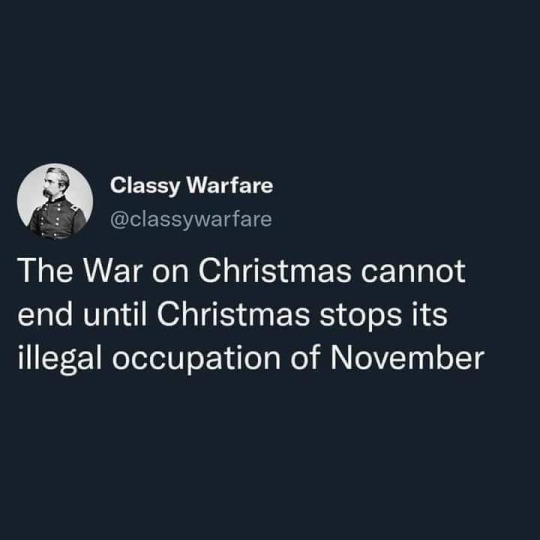
#war on christmas#christmas#xmas#crustmas#november#eat the rich#eat the fucking rich#capitalism#anti capitalist#capitalist hell#capitalist dystopia#capitalist bullshit#fuck the gop#fuck the police#fuck the patriarchy#fuck the supreme court#fuck the tories#fuck the system#corruption#corrupt politicians#corrupt police#anti capitalism#class war#classism#ausgov#politas#auspol#tasgov#taspol#australia
93 notes
·
View notes
Text
As Foucault points out, under imperialist-class labor exploitation, and Christian doctrines of innate human corruption, the whole idea of work had changed. Work was man's just punishment for being born sinful. Daily work was no longer seen as seasonal-cyclic-ritual participation in the life of earth (because it was no longer that), or as sheer productiveness of wealth, but as a moral exercise or expiation of mortal guilt. "Since the Fall, man had accepted labor as a penance for its power to work redemption. It was not a law of nature which forced men to work, but the effect of a curse." At least, this is how the religious and courtly elites interpreted human work, for such a definition worked to their advantage. People had to bend their backs in endless unrewarding labor—not to provide the few in power with unearned luxury and idleness—but to pay back their debt of guilt to God. Therefore the poor, seen as refusing to work, were also refusing to be moral, refusing to be righteous, refusing to pay their debt of sin to God. This concept of human labor has ruled the Western world for centuries. The religious ideology of work as divine punishment adjusts people's minds to accept the idea of work as an exploitation of one's life energies.
The definition of the female body and female energy under patriarchal systems corresponds to the definition of the body/energy of the poor and workers under Capitalist economics. The bodily capacities and energies of some people are exploited, used as tools by others; and this is the development of all true classes, which can be simply categorized as "the users" and "the used." Foucault writes that the body's "constitution as a labour power is possible only if it is caught up in a system of subjection (in which need is also a political instrument meticulously prepared, calculated and used); the body becomes a useful force only if it is both a productive body and a subjected body." Thus the political use of the body: the female body, or the body of the working class. The body cannot be used or exploited unless it is both oppressed and still functioning. This "useful tool" conditioning of females and workers is achieved by repressing the body's vital sexual energy, forcing it to sublimate in piety and drudgery. And this conditioning, as Reich clearly saw, is always achieved through religion and religious indoctrination; because, in fact, the spiritual and sexual energies are always subliminally linked.
The church-state ruling elite needs obedient workers to keep the economic and military organizations which service its power running. It also needs obedient (or at least powerless) female bodies to mass produce the workers, the armies, the police, and so forth. Foucault, again, writes that “a population will be precious in proportion to its numbers, since it will afford industry a cheap labor force, which, by lowering the cost price, will permit a development of products and commerce.” By doctrinally controlling the reproductive processes of women—forbidding contraception and abortion, making the multiplying of bodies an act by which the male simultaneously serves his God while subjugating his woman, etc.—the church upholds and furthers the state's power and its busyness, by assuring a continuous large and exploitable population, guaranteeing (1) overspill of numbers to make armies, i.e., "cannon fodder"; (2) a cheap labor force which is divided against itself via endemic competition of its numbers; and (3) a disorganized and malnourished mass which is more vulnerable to political manipulation from the top.
-Monica Sjöö and Barbara Mor. The Great Cosmic Mother: Rediscovering The Religion of the Earth.
#monica sjöö#Barbara mor#capitalist society#worker exploitation#imperialism#female oppression#patriarchy#church and state
22 notes
·
View notes
Text
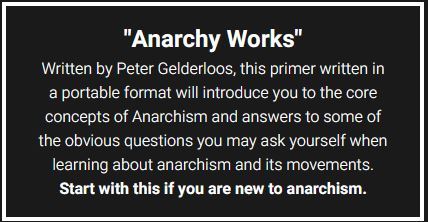
Chapter 1. Human Nature
Haven’t humans always been patriarchal?
One of the most ancient forms of oppression and hierarchy is patriarchy: the division of humans into two rigid gender roles and the domination of men over women. But patriarchy is not natural or universal. Many societies have had more than two gender categories, and have allowed their members to change gender. Some even created respected spiritual roles for those who did not fit into either of the primary genders. The majority of prehistoric art depicts people who are either of no determinate gender or people with ambiguous, exaggerated combinations of masculine and feminine traits. In such societies, gender was fluid. It was something of a historic coup to enforce the notion of two fixed, idealized genders that we now consider natural. Speaking in strictly physical terms, many perfectly healthy people are born intersexed, with male and female physiological characteristics, showing that these categories exist on a fluid continuum. It makes no sense to make people who do not fit easily into one category feel as though they are unnatural.
Even in our patriarchal society, in which everyone is conditioned to believe that patriarchy is natural, there has always been resistance. Much current resistance by queer people and transgender people takes a horizontal form. One organization in New York City, called FIERCE!, includes a wide spectrum of people excluded and oppressed by patriarchy: transgender, lesbian, gay, bisexual, two-spirit (an honored category in many Native American societies for people who are not identified as strictly men or women), queer, and questioning (people who have not made up their minds about their sexuality or gender identity, or who do not feel comfortable in any category). FIERCE! was founded in 2000, mostly by youth of color, and with anarchist participation. They uphold a horizontal ethic of “organizing by us, for us,” and they actively link resistance to patriarchy, transphobia, and homophobia with resistance to capitalism and racism. Their actions have included protesting police brutality against transgender and queer youth; education through documentary films, zines, and the internet; and organizing for fair healthcare and against gentrification, particularly where the latter threatens to destroy important cultural and social spaces for queer youth.
At the time of this writing they are particularly active in a campaign to stop the gentrification of the Christopher Street Pier, which has been one of the only safe public spaces for homeless and low-income queer youth of color to meet and build community. Since 2001, the city has been trying to develop the Pier, and police harassment and arrests have multiplied. The FIERCE! campaign has helped provide a rallying point for those who want to save the space, and changed the public debate so that other voices are heard besides those of the government and business owners. Our society’s attitudes about gender and sexuality have changed radically in the past centuries, largely because of groups like this taking direct action to create what is said to be impossible.
Resistance to patriarchy goes back as far as we care to look. In the “good old days” when these gender roles were supposedly unchallenged and accepted as natural, we can find stories of utopia, that upset the assumption that patriarchy is natural, and the notion that civilized progress is bringing us steadily from our brutal origins towards more enlightened sensibilities. In fact the idea of total freedom has always played a role in human history.
In the 1600s, Europeans were streaming to North America for a variety of reasons, building new colonies that exhibited a wide range of characteristics. They included plantation economies based on slave labor, penal colonies, trading networks that sought to compel the indigenous inhabitants to produce large quantities of animal skins, and fundamentalist religious utopias based on the total genocide of the native population. But just as the plantation colonies had their slave rebellions, the religious colonies had their heretics. One noteworthy heretic was Anne Hutchinson. An anabaptist who came to New England to escape religious persecution in the old world, she began to hold women’s meetings in her house, discussion groups based on free interpretation of the Bible. As the popularity of these meetings spread, men began to participate as well. Anne won popular support for her well argued ideas, which opposed the slavery of Africans and Native Americans, criticized the church, and insisted that being born a woman was a blessing and not a curse.
The religious leaders of the Massachusetts Bay Colony put her on trial for blasphemy, but at trial she stood by her ideas. She was heckled and called an instrument of the devil, and one minister said, “You have stepped out of your place, you have rather been a husband than a wife, a preacher than a hearer, and a magistrate than a subject.” Upon her expulsion Anne Hutchinson organized a group, in 1637, to form a settlement named Pocasset. They intentionally settled near to where Roger Williams, a progressive theologian, had founded Providence Plantations, a settlement based on the idea of total equality and freedom of conscience for all inhabitants, and friendly relations with the indigenous neighbors. These settlements were to become, respectively, Portsmouth and Providence, Rhode Island. Early on they joined to form the Rhode Island Colony. Both settlements allegedly maintained friendly relations with the neighboring indigenous nation, the Narragansett; Roger Williams’ settlement was gifted the land they built on, whereas Hutchinson’s group negotiated an exchange to buy land.
Initially, Pocasset was organized through elected councils and the people refused to have a governor. The settlement recognized equality between the sexes and trial by jury; abolished capital punishment, witchtrials, imprisonment for debt, and slavery; and granted total religious freedom. The second synagogue in North America was built in the Rhode Island colony. In 1651 one member of Hutchinson’s group seized power and got the government of England to bestow him governorship over the colony, but after two years the other people in the settlement kicked him out in a mini-revolution. After this incident, Anne Hutchinson realized that her religious beliefs opposed “magistracy,” or governmental authority, and in her later years she was said to have developed a political-religious philosophy very similar to individualist anarchism. One might say that Hutchinson and her colleagues were ahead of their times, but in every period of history there have been stories of people creating utopias, women asserting their equality, laypeople negating the religious leaders’ monopoly on truth.
Outside of Western civilization we can find many examples of non-patriarchal societies. Some stateless societies intentionally preserve gender fluidity, like the Mbuti described previously. Many societies accept fixed genders and division of roles between men and women, but seek to preserve equality between these roles. Several of these societies allow transgender expressions — individuals changing their gender or adopting a unique gender identity. In hunter-gatherer societies “a sharp and hard division of labor between the sexes is not universal... [and in the case of one particular society] virtually every subsistence activity can be, and often is, performed by either men or women”.[7]
The Igbo of western Africa had separate spheres of activity for men and women. Women were responsible for certain economic tasks and men for others, and each group held power autonomously over their sphere. These spheres designated who produced which goods, domesticated which animals, and took which responsibilities in the garden and market. If a man interfered in the women’s sphere of activity or abused his wife, the women had a ritual of collective solidarity that preserved the balance and punished the offender, called “sitting on a man.” All the women would assemble outside the man’s house, yelling at him and insulting him in order to cause him shame. If he did not come out to apologize the mob of women might destroy the fence around his house and his outlying storage buildings. If his offense were grievous enough, the women might even storm into his house, drag him out, and beat him up. When the British colonized the Igbo, they recognized men’s institutions and economic roles, but ignored or were blind to the corresponding women’s sphere of social life. When Igbo women responded to British indecency with the traditional practice of “sitting on a man,” the British, possibly mistaking it for a women’s insurrection, opened fire, putting an end to the gender-balancing ritual and cementing the institution of patriarchy in the society they had colonized.[8]
The Haudennosaunne, called the Iroquois by Europeans, are a matrilineal egalitarian society of eastern North America. They traditionally use several means to balance gender relations. Whereas European civilization utilizes gender division to socialize people into rigid roles and to oppress women, queer, and transgendered people, the gendered division of labor and social roles among the Haudennosaunne functions to preserve a balance, assigning each group autonomous niches and powers, and allowing a greater degree of movement between genders than is considered possible in Western society. For hundreds of years the Haudennosaunne have coordinated between multiple nations using a federative structure, and at each level of organization there were women’s councils and men’s councils. At what might be called the national level, which concerned itself with matters of war and peace, the men’s council made the decisions, though the women held a veto power. At the local level, women held more influence. The basic socio-economic unit, the longhouse, was considered to belong to the women, and men had no council at this level. When a man married a woman, he moved into her house. Any man who did not behave could ultimately be kicked out of the longhouse by the women.
Western society typically sees the “higher” levels of organization as being more important and powerful — even the language we use reflects this; but because the Haudennosaunne were egalitarian and decentralized, the lower or local levels of organization where the women had more influence were more important to daily life. In fact when there was no feud between the different nations the highest council might go a long time without meeting at all. However, their’s was not a “matriarchal” society: men were not exploited or devalued the way women are in patriarchal societies. Rather, each group had a measure of autonomy and means for preserving a balance. Despite centuries of colonization by a patriarchal culture, many groups of Haudennosaunne retain their traditional gender relations and still stand out in sharp contrast to the gender-oppressive culture of Canada and the United States.
#anarchism#daily posts#communism#anti capitalist#anti capitalism#late stage capitalism#anarchy#anarchists#libraries#leftism#anarchy works#the patriarchy#feminism#sexism
4 notes
·
View notes